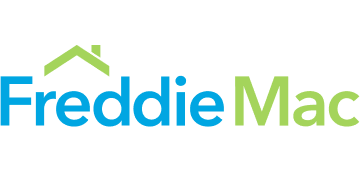AI Elevates Patient Care at Phoenix Children’s

Phoenix Children’s drove measurable improvements in patient care and operations with DataRobot AI Platform. Without any data scientists, they reach viable models in minutes.
The return both clinically and financially with DataRobot has far exceeded the cost. You can’t put a price on improving a child’s life.
Data Enriches Hospitalwide Decisions
From research to treatment, Phoenix Children’s is continuously at the forefront of innovation, and as a result, is recognized among the nation’s top-ranked children’s hospitals.
The organization is now looking to data to help make predictions that improve both clinical and operational decisions. But manually building a single model took the better part of a year.
“Creating predictive algorithms on our own showed great opportunity, but it took so long that it wasn’t scalable or sustainable,” explained David Higginson, Executive Vice President and Chief Innovation Officer. “One model took nine months, and would take another nine months if we wanted to make any changes.”
AI – Without a Data Science Team
Phoenix Children’s turned to DataRobot AI Platform for the promise of automating its predictive analytics and for ease of use for business and IT users.
“DataRobot AI Platform was the most automated solution we looked at,” Higginson said. “We’re not statisticians, and have no dedicated staff for this, but we felt comfortable that we could do it ourselves.”
As a healthcare organization, Phoenix Children’s chose to deploy the solution on-premise. DataRobot Customer-Facing Data Scientists helped integrate the DataRobot platform with the hospital’s Microsoft data and analytics suite, including Microsoft Power BI, and the project was up and running within a couple of days. Along the way, the team at Phoenix Children’s aligned with the DataRobot data scientists for modeling best practices.
“DataRobot staff typically respond the same day, if not within hours,” said William Donegan, Data Architect, IT. “The guidance they provide on the impact of different approaches to feature development, and their ability to answer questions about complex subjects in understandable terms has been really helpful.”
Uncovering Children At Risk of Malnutrition
Phoenix Children’s applies DataRobot AI Platform for both clinical and operational applications. The healthcare system knew that a certain percentage of children who present with other health concerns may actually have undiagnosed malnutrition. If they could identify cases of malnutrition, they could intervene and influence outcomes.
Within a couple of hours, they built a comprehensive dataset based on 10 years of hospital data. Then they used modeling to identify children who may be at-risk for malnutrition. With subsequent nutritionist evaluations of identified patients, they now uncover several patients every week.
“We are finding four to five kids a week,” Higginson said. “Those are kids who would not have been diagnosed with malnutrition otherwise. It will absolutely make a long-term difference in their healthcare.”
With the closed-loop augmented AI, the algorithm flags patients for clinical review. Upon examination by a nutritionist, the patient’s medical record may be updated to include a malnutrition diagnosis code.
Reducing the No-Show Rate by 9,000 Appointments
Phoenix Children’s also turned to DataRobot to predict no-shows for appointments, which traditionally happen about 10 to 20 percent of the time. If the hospital can prevent missed appointments, or proactively fill slots that would have been missed, then they can see more patients sooner and retain that revenue.
Using DataRobot, Phoenix Children’s built a predictive model to determine who might be likely to miss an appointment and created a list for staff to call. With world-renowned physicians having expertise in rare diseases, being able to keep the schedule full results in more patients being treated and more efficient use of these valuable resources.
Every day, they discovered an average of 25 patients were not planning to attend their appointments, allowing the hospital to offer those spots to others. In total, Phoenix Children’s can now identify about 9,000 appointments a year that would have been missed.
Phoenix Children’s has additionally applied DataRobot to predicting emergency room visits, which can vary from three patients a day to 400. If they can predict volume, then they can adjust staffing accordingly.
Deploying Predictive Models in a Few Clicks
DataRobot AI Platform makes it possible for Phoenix Children’s to gain valuable insights without a team of data scientists.
“DataRobot churns through multiple machine learning model algorithms, displays the results on a leaderboard, and suggests a production candidate from among the options, all within a matter of minutes,” Donegan said. “Most importantly, DataRobot lets me focus on what I do best, wrangling data, while it handles the complexity of model development.”
Phoenix Children’s can evaluate model performance with interactive, visual elements. They can adjust thresholds and performance metrics on the fly, and see the effects of those changes in real time. When ready, they deploy models in a few clicks.
With results so far, the hospital system looks forward to applying AI to other use cases in its effort to improve operations, and most importantly, elevate patient care.
“The return both clinically and financially with DataRobot has far exceeded the cost,” Higginson said. “You can’t put a price on improving a child’s life.”









